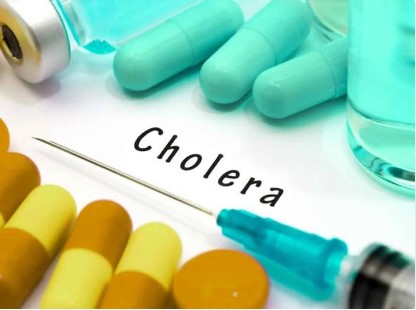
The Chairman of the Forum of Health Commissioners of Nigeria, Dr Oyebanji Filani, has disclosed that 22 states have received test kits and other materials from the Federal Government following the recent cholera outbreak in some parts of the country. No state has received the cholera vaccine, and the focus is on prevention and quick treatment.
The Nigeria Centre for Disease Control and Prevention has reported over 1,528 suspected cases in 31 states, with Lagos, Bayelsa, Zamfara, Abia, Cross River, Bauchi, Delta, Katsina, Imo, and Nasarawa being the most affected. The primary cause of the outbreak has been linked to the consumption of contaminated water and inadequate sanitation, exacerbated by the onset of the rainy season.
Filani, who is also the Commissioner for Health and Human Services in Ekiti State, listed the states that have received test kits, consumables, and other materials from the Federal Government as Bayelsa, Zamfara, Abia, Cross River, Bauchi, Delta, Katsina, Imo, Nasarawa, Ondo, Osun, Niger, Kano, Lagos, Akwa Ibom, Benue, Kwara, Anambra, Sokoto, Plateau, Ebonyi, and Ekiti.
In Lagos, suspected cases of cholera have risen to about 500, according to the Special Adviser to Governor Babajide Sanwo-Olu on Health, Dr Kemi Ogunyemi. However, she noted that the trend was declining due to massive sensitization efforts by the government. Lagos Island, Kosofe, and Lagos Mainland local government areas have recorded the highest number of cases.
The Federal Government has also operationalized the Emergency Operation Centre for Cholera to track and respond to the outbreak. The National Primary Health Care Development Agency is working to procure cholera vaccines, but the vaccine is scarce globally. The agency is exploring emergency procurement options and hopes to get an update on supply soon.
The Nigerian Medical Association has deployed its members across states to contain the outbreak, while the Nigerian Association of Resident Doctors is working to encourage doctors to heighten their suspicion when attending to patients. The Federal Ministry of Environment has urged states to support environmental health officers in breaking the transmission of the disease through water and food testing, environmental sanitation campaigns, and household water chlorination.
